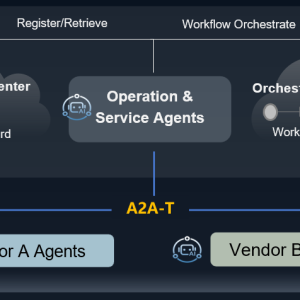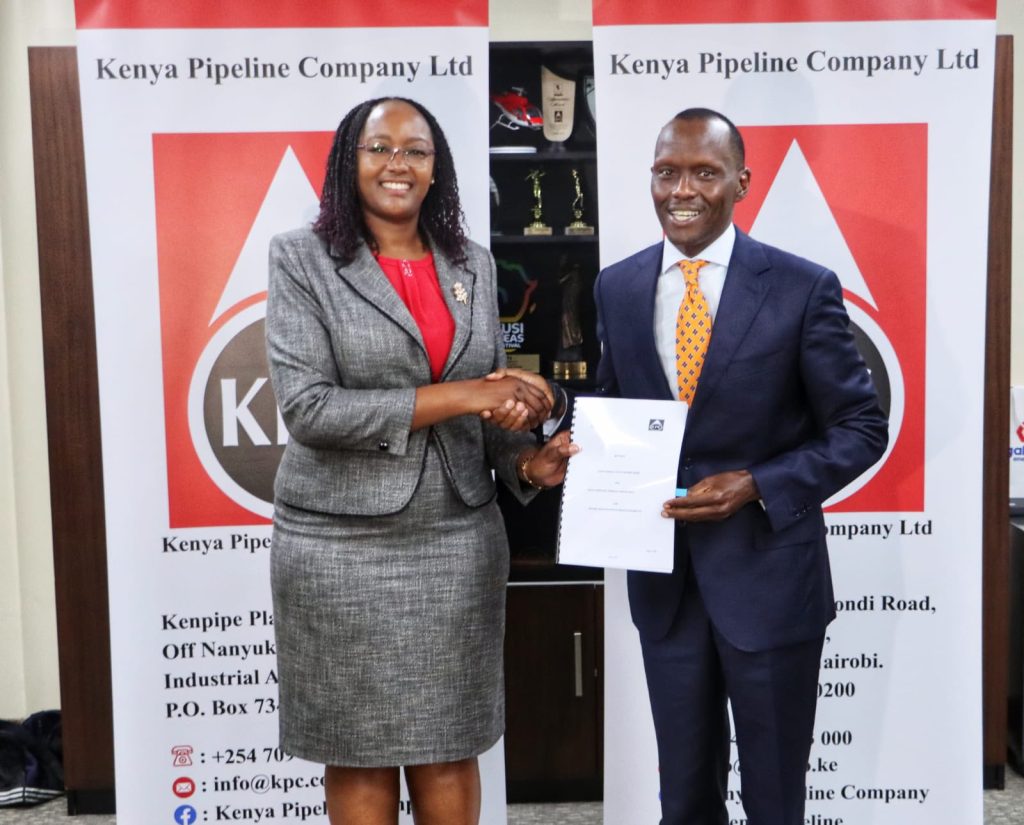
From Left:Esther Ngari, KEBS Managing Director and Right:KPC Managing Director Joe Sang during the signing of Service Level Agreement that will see all petroleum imports tested at KPC’s ISO 17025-accredited labs
KPC, KEBS ink Sh45M fuel testing deal
Kenya Pipeline Company (KPC) and Kenya Bureau of Standards (KEBS) have signed a Sh45 million, 3-year Service Level Agreement that will see all petroleum imports tested at KPC’s ISO 17025-accredited labs.
The move aims at strengthening fuel quality assurance, supporting trade facilitation, and leveraging KPC’s network of seven labs across the country.
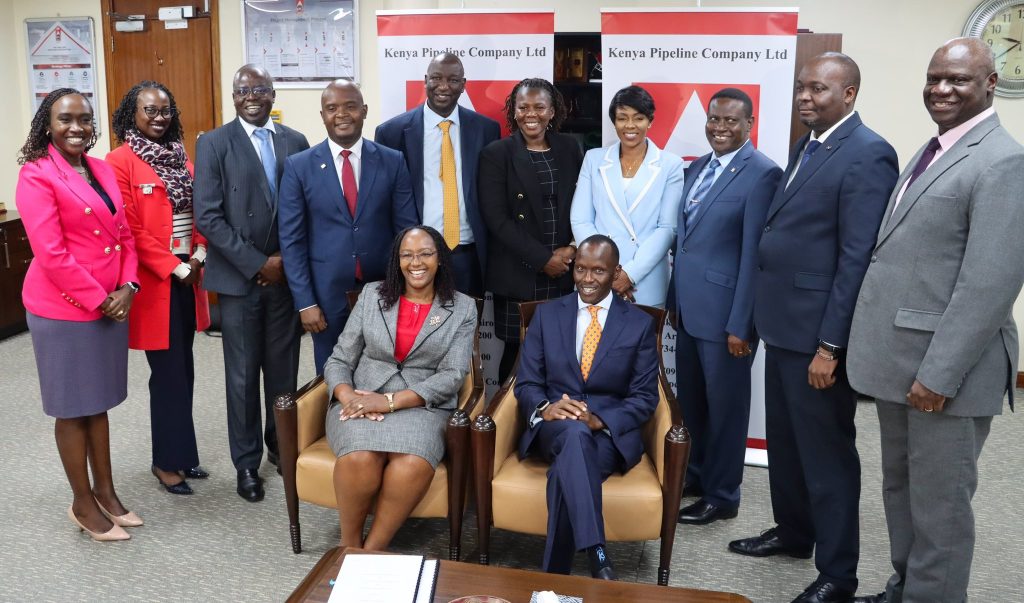 KPC Managing Director Joe Sang noted that this partnership is a game-changer in commercialising the firm’s lab services and deepening trust in the petroleum sector.
KPC Managing Director Joe Sang noted that this partnership is a game-changer in commercialising the firm’s lab services and deepening trust in the petroleum sector.
The partnership will cut down fuel clearance times, promote transparency and strengthen Kenya’s reputation as a regional energy leader.
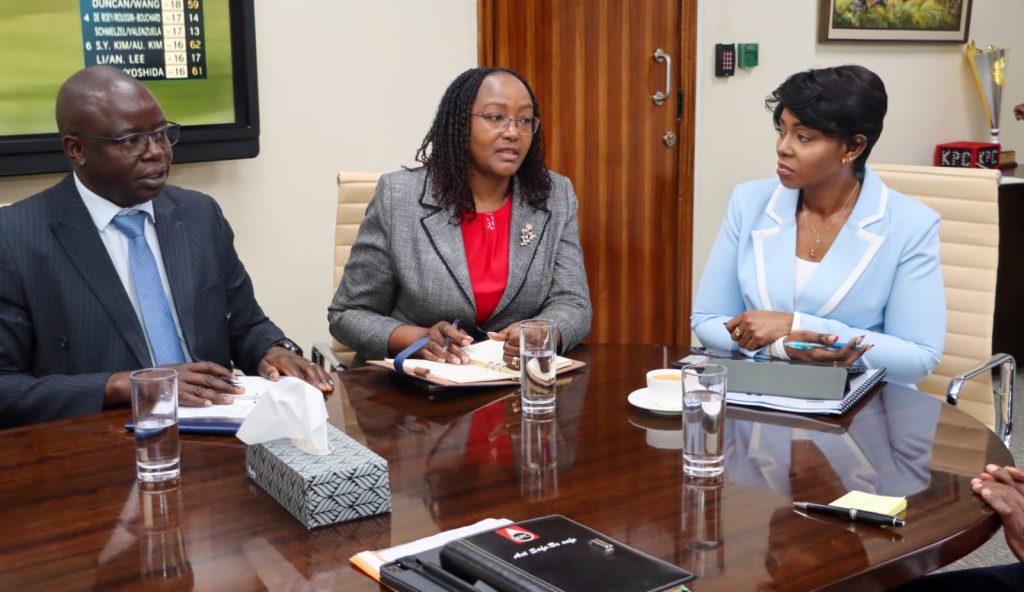
Esther Ngari, KEBS Managing Director, expressed confidence in KPC’s testing capabilities and highlighted a key opportunity:
“The potential to calibrate petroleum products locally instead of sending them abroad, a move that could save time, cut costs and boost national capacity.”
 Among the leaders who were present during the signing ceremony of the SLA were: KPC Quality Control Manager Amos Mugira, KPC Operations Manager Eng.Martin Wanyama, KPC SHE Manager Carol Kiplagat, KPC Legal Service Manager Gloria Khafafa and KEBS representatives.
Among the leaders who were present during the signing ceremony of the SLA were: KPC Quality Control Manager Amos Mugira, KPC Operations Manager Eng.Martin Wanyama, KPC SHE Manager Carol Kiplagat, KPC Legal Service Manager Gloria Khafafa and KEBS representatives.
KPC is also set for a significant boost in its operational efficiency and regional reach with major upgrades, including expanded storage at Port Reitz (110M liters) and Kisumu (10M liters AGO tank), alongside a substantial increase in Line 4’s flow rate to 510,000 litres per hour.
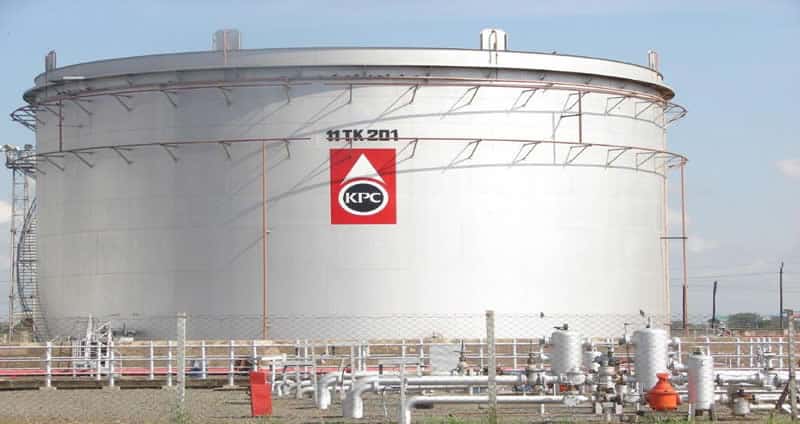 In a move to strengthen regional ties and streamline operations, the KPC will also establish a liaison office in Uganda by January 2026.
In a move to strengthen regional ties and streamline operations, the KPC will also establish a liaison office in Uganda by January 2026.
KPC currently handles approximately 90 percent of petroleum products destined for the Ugandan market.
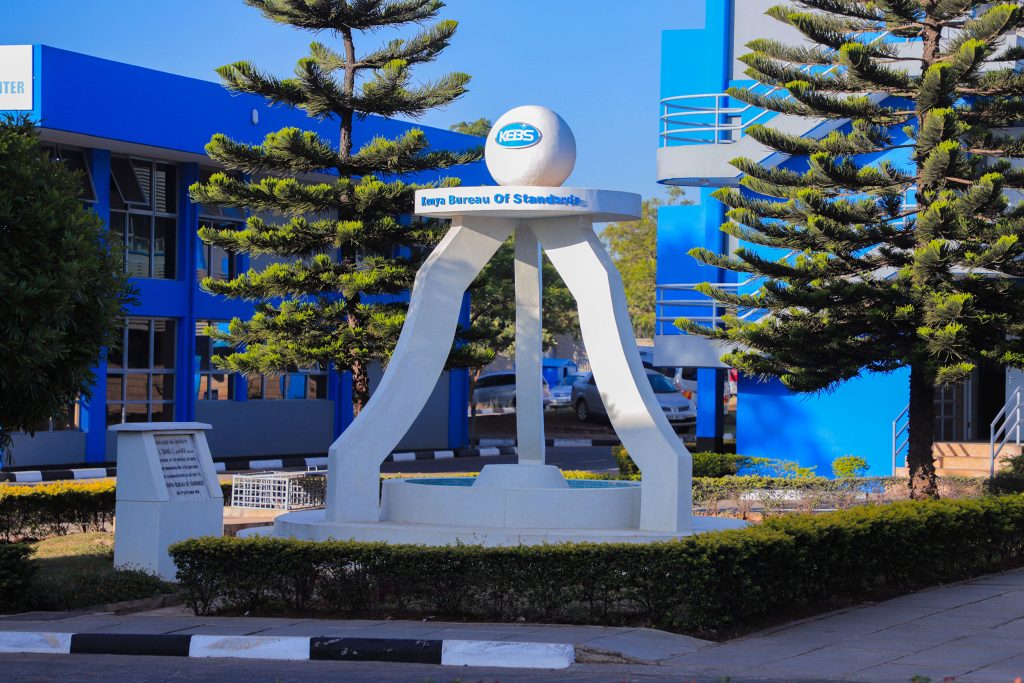 Meanwhile, the company is progressing with the Eldoret–Kampala–Kigali pipeline project, which he said would ultimately reduce petroleum costs for consumers across the region.
Meanwhile, the company is progressing with the Eldoret–Kampala–Kigali pipeline project, which he said would ultimately reduce petroleum costs for consumers across the region.
KEBS on their side are intensifying its market surveillance efforts including for overseas manufacturers to ensure that products bearing the D-Mark continue to reflect the excellence it promises.





